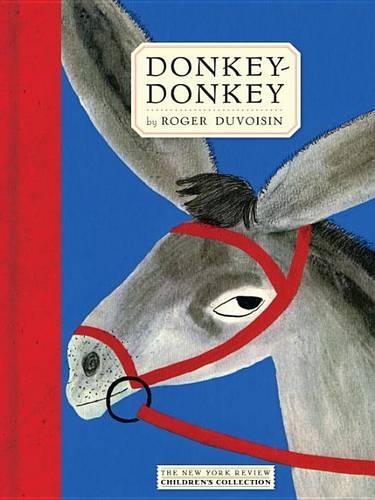
Donkey-Donkey
(Hardback, Main)
Publishing Details
Donkey-Donkey
By (Author) Roger Duvoisin
New York Review Books
NYRB Children's
30th May 2016
21st April 2016
Main
United States
Classifications
Children
Fiction
823.912
Physical Properties
Hardback
56
Width 170mm, Height 223mm, Spine 10mm
265g
Description
Donkey-donkey has a problem. Despite his many friends and his good master, he is sad because his ears are so long and ridiculous. If only Donkey-donkey could have short sensible ears like his friend Pat the horse he would be content. So he seeks the advice of his fellow farm animals who suggest he wear his ears differently, more like theirs: floppy like the dog's, to the side like the sheep's, to the front like the pig's. But each unnatural arrangement leads to increasing insult and injury. Finally a little girl passing by remarks on the beauty of the pretty little donkey's ears! At last Donkey-donkey is happy. This is a classic tale of vanity and folly, and learning to accept oneself-protrudent ears, redundant name, and all.
Reviews
"Cheerful farm-set illustrations with fine black lines and washes of color add humor to Donkey-donkey's plight. Duvoisin's 'be yourself' message is as relevant today as it was in the eighty-three years since the book's original publication." Elissa Gershowitz, The Horn Book Magazine
You will want to find a copy of this one. Its funnya delight. Julie Danielson, Kirkus
The message of this story is that its best to be oneself, and Caldecott Medalwinning Duvoisin delivers it with compassion and humor, without being sentimental. He knows how to pace a story, give rhythm to the language, and create inviting, bold illustrations.Isabel Baker and Miriam Baker Schiffer,Young Children
[A] delightful book: the pictures...make the point vividly clear even to a very small child.New Statesman
Author Bio
Roger Duvoisin (1900-1980) was born to a French-Swiss family in Geneva, where he began a career in art and design, painting and designing murals, theatrical scenery, and posters. His design work brought him to France, where he worked in the world of high-fashion textile design. In 1925, he immigrated to the United States and soon after began writing and illustrating children's books. Duvoisin collaborated with many writers including his wife Louise Fatio Duvoisin, and Alvin Tressalt, with whom he won a Caldecott Award for White Snow, Bright Snow in 1948 and the Caldecott Honor Award for Hide and Seek Fog in 1966.
